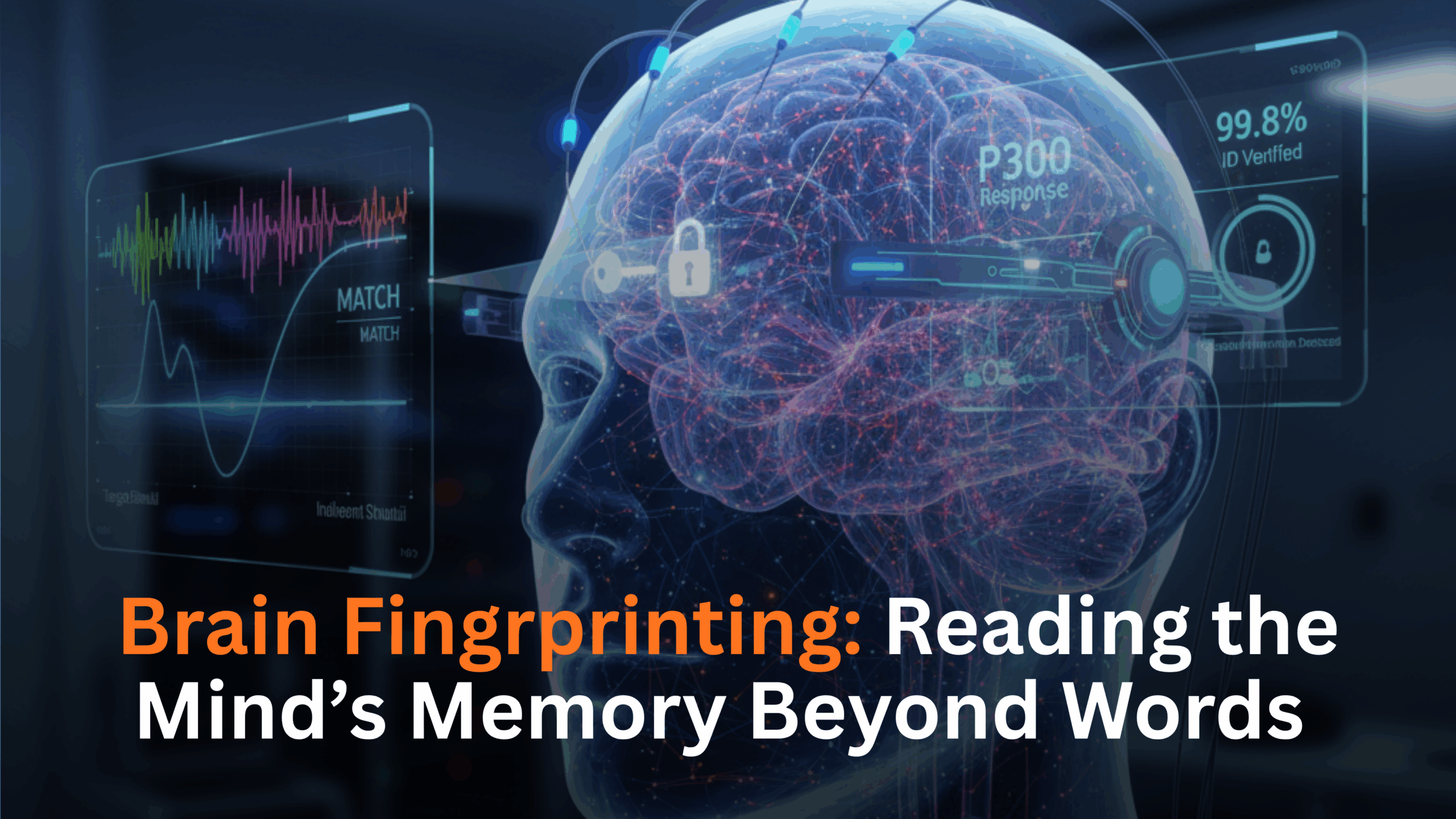Even Two Years After COVID, Loss of Smell Persists in Most Patients, Major U.S. Study Finds A new large scale […]
Brain Fingerprinting: Reading the Mind’s Memory Beyond Words

Introduction: The New Frontier in Forensic Neuroscience
In a world where truth can be elusive, Brain Fingerprinting Technology (BFT) offers a revolutionary approach: it measures what your brain remembers, not what you say. Unlike traditional lie detectors that rely on physiological responses like heart rate or sweating, BFT taps directly into electrical brain activity, providing a glimpse into memory itself.
This emerging technology has the potential to reshape forensic science, criminal justice, and cognitive research, making the invisible mechanisms of the mind visible -and measurable.
How Brain Fingerprinting Works
At its core, BFT leverages a simple but powerful principle: the brain reacts differently to familiar versus unfamiliar information. When a person recognizes a stimulus -A word, image, or sound – the brain produces a specific electrical signal known as the P300 wave, detectable through electroencephalography (EEG).
Step-by-Step Process:
1. Stimulus Presentation: Crime-related images, words, or sounds are shown to the subject.
2. EEG Monitoring: Sensors capture the brain’s electrical responses in real time.
3. P300 Analysis: Recognition triggers a measurable P300 wave, indicating memory of the information.
4. Comparison: Responses to crime-related vs neutral stimuli are analyzed to determine recognition.
This method is objective, rapid, and difficult to deceive, making it a powerful tool for modern forensic investigations.
Medical & Forensic Applications
1. Criminal Justice: Can help determine whether suspects recognize details of a crime, complementing traditional evidence.
2. Counter-Terrorism: Evaluates if individuals hold knowledge of sensitive information.
3. Neurological Research: Offers insights into memory function, cognitive disorders, and brain connectivity.
4. Medical Diagnostics: Potential for early detection of memory impairment or cognitive decline.
“It’s like giving the brain a lie detector test – but one that’s nearly impossible to cheat.”
Advantages Over Conventional Methods
- Objective Measurement: Directly measures memory rather than emotional or physiological responses.
- Non-Invasive & Safe: Uses standard EEG techniques.
- Difficult to Manipulate: Unlike polygraphs, brain responses cannot easily be suppressed.
- Rapid and Accurate: Provides measurable results in minutes under controlled conditions.
Challenges and Ethical Considerations-
While promising, BFT is not a magic bullet:
Memory Recognition Guilt: Recognizing crime-related information does not prove involvement.
Ethical Concerns: Consent, privacy, and misuse remain critical issues.
Technical Requirements: Accurate analysis requires specialized equipment and trained professionals.
Experts emphasize that ethical frameworks must guide its deployment in forensic and medical contexts.
The Future: Science Meets Justice
Brain Fingerprinting is a glimpse into the future of forensic science and cognitive research. By making memory measurable, it may revolutionize investigations, improve security protocols, and advance our understanding of the human mind – all while raising important ethical questions about privacy and consent.
“The mind leaves traces; science is finally learning to read them.”
References
- Farwell, L. A., & Donchin, E. (1991). The truth will out: Interrogative polygraphy with event-related brain potentials. Psychophysiology, 28(5), 531–547.
- Farwell, L. A. (2012). Brain fingerprinting: Science and law. Springer.
- Rosenfeld, J. P., et al. (2013). Applications and limitations of brain fingerprinting. International Journal of Psychophysiology, 87(3), 222–229.


